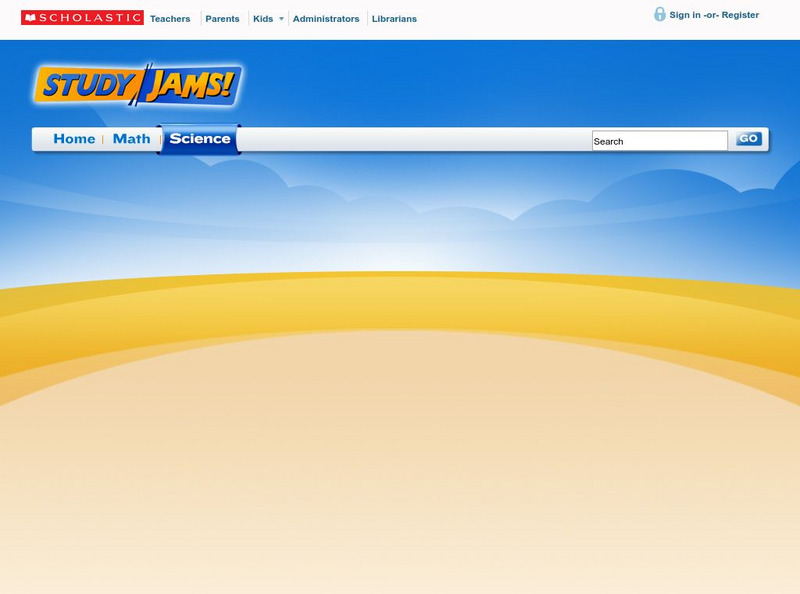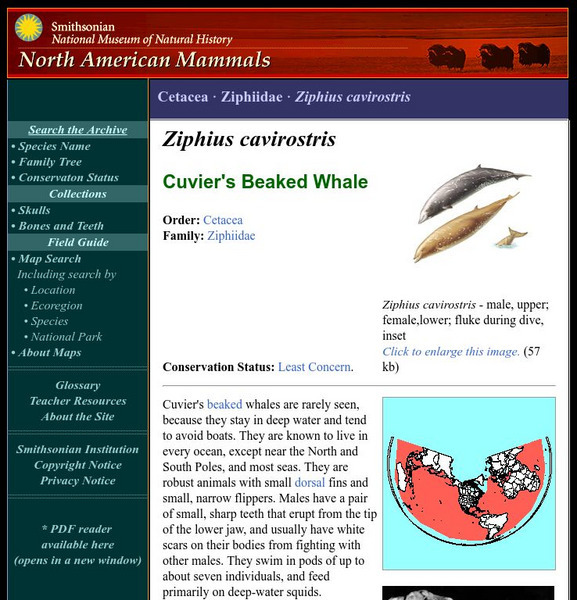The Newberry Library
Newberry Library: Art and Exploration of the Poles
Resource with lesson and primary source documents examines the connections between exploration of the North and South Poles and their visual representation.
Woods Hole Oceanographic Institution
Polar Discovery: Compare the Poles
A detailed comparison of many aspects of the two polar regions. Includes physical features, seasons, weather, types of ice, plants and animals, human population, and climate change.
Treehut
Suzy's World: Magnetism: Why Does a Compass Point North?
This fact sheet from Suzy's World and Suzy Cato explores how magnetism works, including "why a compass points north." Content includes fun facts, an experiment, and the ability to make your own compass.
NASA
Nasa: Climate Kids: Polar Temperatures
What is it that maske the North and South Pole so different? Find out here when you learn about the climates of the poles
Other
Satellite Images Bridge Understanding Gap Between Climate Change and Individuals
This article discusses how Google Earth has brought the reality of climate change to the average person so that they can see it for themselves. The north and south poles are indicators of what is happening with climate change and an...
Smithsonian Institution
National Museum of Natural History: Ocean Portal: Life at the Poles
The poles of the earth are often grouped together, however, they are very different. This article is a companion to the exhibit at the Smithsonian. You will learn about adaptations that organisms must make and ways that we affect the...
University of Wisconsin
The Why Files: Energy at the Earth's Poles
A resource to help understand how the amount of energy at the Earth's poles affects polar conditions.
Alabama Learning Exchange
Alex: The Equator and the Poles
This activity provides hands-on activities that will teach students about the poles and the equator. Students will be labeling a globe, recreating a globe within the classroom, and researching information on the Internet.
ClassFlow
Class Flow: Parts of the Globe
[Free Registration/Login Required] This flipchart explores the vocabulary of studying the parts of the globe: north pole, south pole, equator, longitude, latitude, etc.
TED Talks
Ted: Ted Ed: The Dangerous Race for the South Pole
After two Americans staked claim to reaching the North Pole, a Norwegian explorer and a British naval officer each set out for the last unmapped region in what newspapers called a "Race to the Pole." Elizabeth Leane sets the scene for...
Other
The North Pole: Christmas Around the World
A look at how world countries celebrate the different traditions of the Christmas season.
NOAA
Noaa: Make Your Own Compass [Pdf]
Build a compass to help you figure out which direction is north or south.
World Wildlife Fund for Nature
Wwf: Our Earth: Ecoregions: Habitats: Polar Regions
A simple introduction and overview of the polar regions. Includes a link to information about animals that live in a polar habitat.
Exploratorium
Exploratorium: Global Climate Change: Cryosphere
Examine the effects climate has on the snow and ice covered cryosphere and see live data gathered from the North and South Poles.
Alabama Learning Exchange
Alex: How Do Magnets Work?
During this lesson students will examine magnets and determine that they have two poles (north and south). They will observe which poles attract and which poles repel.
TED Talks
Ted: Ted Ed: The Arctic vs. the Antarctic
Camille Seaman describes how enterprising people and organisms have found ways to reside around both poles despite the frigid temperatures. [4:24]
Scholastic
Scholastic: Study Jams! Science: Energy, Light and Sound: Magnetism
A slideshow and a short multiple-choice quiz on the basic concepts and vocabulary of magnetism.
Smithsonian Institution
National Museum of Natural History: American Mammals: Cuvier's Beaked Whale
Cuvier's beaked whales are rarely seen because they stay in deep water and tend to avoid boats. They are known to live in every ocean, except near the North and South Poles, and most seas. Learn more about the Ziphius cavirostris, more...
Georgia Department of Education
Ga Virtual Learning: Forces on Moving Charges in Magnetic Fields
In this interactive tutorial students will explore magnetic force. Students will observe interactions of magnets and study magnetic fields. The source of magnetic properties is believed to be moving charge. Since moving charge produces...
Science Buddies
Science Buddies: The Strength of an Electromagnet
Has anyone ever told you that you have a magnetic personality? Have you ever heard that opposites attract? These common phrases are both based on the properties of magnets and magnetic electricity. In this science fair project, learn how...
Science Buddies
Science Buddies: Levitating Magnets: Floating Isn't Just for Magicians
If you ever seen a magician float an object in the air, you might think that levitation is just a magic trick, but the truth is you can use an invisible physical force to levitate a magnet. Try this simple, week-long science project to...
Other
Usps: Polar Lights
You and your students are going on an expedition to learn about the polar regions. Explore the glaciers, subglacial rivers, and volcanoes. Get up close and personal with furry, flippered, and feathered friends. Learn how other people...
Curated OER
Educational Technology Clearinghouse: Clip Art Etc: Roald Amundsen
(1872-1928) Norwegian explorer most famous for first reaching the North and South Poles.
Other
Magnet Man: Cool Experiments With Magnets
Here is a lengthy listing of activities and resources pertaining to magnets and magnetism. Experiments which can be performed with many different types of magnets are described; detailed directions and photos are provided.

















